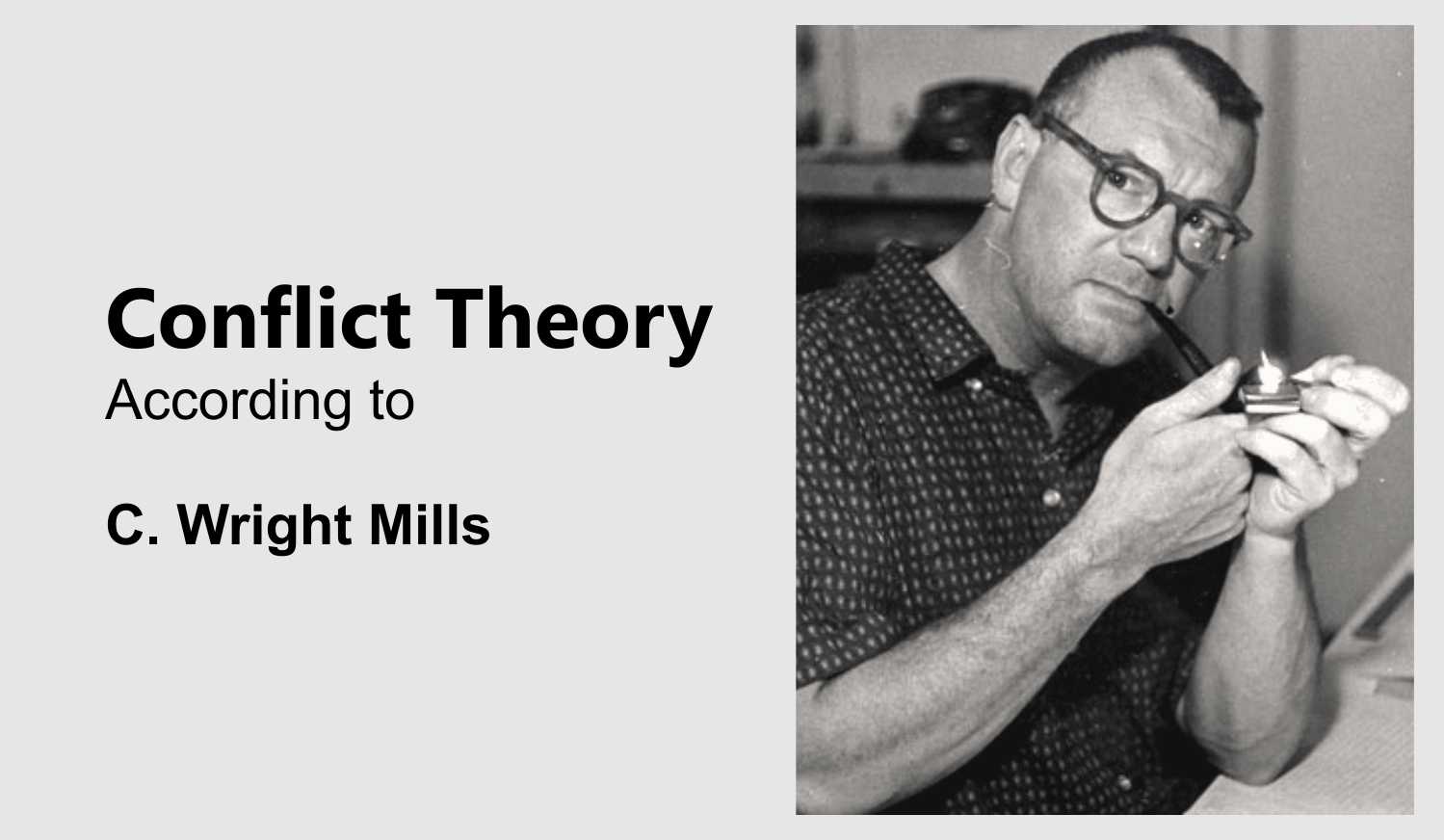What are the views and understandings of C. Wright Mills conflict Theory? Let’s look at the explanation of conflict theory according to this one sociological figure.
Want to know more fully, how we view the conflict version of this critical figure, it is important to study. Let’s read.
Understanding the Thought of C. Wright Mills
There are several important figures in sociology who also gave their views on conflict, ranging from Karl Marx, Lewis Coser, Jonathan Turner, Ralf Dahrendorf, and many others.
The discussion of conflict is indeed interesting to study. Moreover, in the community itself, there will certainly be various disputes and conflicts.
There are also those who say that conflict always leads to negative things. However, there are also those who say that conflict can lead to positive things.
Indeed, there are many views and perspectives given by figures and experts on conflicts that occur in society.
So on this occasion, we will briefly review the understanding of conflict from the character, namely conflict according to C Wright Mills.
Charles Wright Mills is an American sociologist who was born in Waco Texas on August 28, 1916.
He died in West Nyack, New York, on March 20, 1962. Mills was indeed known as a radical thinker who was rich in ideas, open and courageous.
He is known as a sociologist who is intense in observing the reality of the state and power.
Then he is famous for putting forward a very famous theory, namely the power elite theory.
That’s a glimpse of a popular figure in sociology with his phenomenal works, in his thoughts and perspectives.
So what do you think about conflict? Check out the explanations and reviews below, let’s read.
Conflict Theory in the Perspective of C. Wright Mills
Understanding C. Wright Mills’s thoughts on conflict let’s see, read the plan yes.
Mills said that to be able to create a good society on the basis of knowledge and its formation.
It is the responsibility of the intellectuals to socialize liberally and support the revolution in Cuba.
He also condemned the American reaction to the revolution in Cuba because he believed that the revolution in Cuba would unite revolutionary socialism and freedom.
The theme of the theme discussed in depth and specifically in Mills Sociology is the relationship between alienation and bureaucracy as well as the power of the elite.
First, a Glimpse Understanding the Alienation of Bureaucracy
According to Mills explaining the economic difficulties experienced by workers in the past have been replaced.
Today by psychological dissatisfaction rooted in alienation. The workers of what they work for.
He views these workers who work in offices as apathetic, fearful and shaped by mass culture.
Where in modern society, those in power often use it covertly.
With the aim of doing manipulation manipulation. Therefore, Mills argues that bureaucracy is synonymous with manipulation.
According to him, the rational system hides their power so that no one understands their calculations. For the biocracy, the world is an object of manipulation.
Second, Elite Group Power
For Mills himself in America at that time, it was controlled by a group of ruling elites, which consisted of people who produced dominant positions in the field.
Politics, military and economy. Where the three areas of power have a relationship with one another.
Until the people in power in the field, work together to create a group of elites in power in America.
It is therefore not surprising that a high-ranking military official could become a capitalist.
Likewise, the head of government can apply his style of government like an army. Mills explained that he believed where power could be based on other factors.
Indeed and not on mere ownership. However, it is the same interests of this elite group that have united them and sustained the economy.
So, that’s just a brief overview of the basics that friends can read from the reference sources below. Then, what about conflict in a sociological sense?
Where conflict is defined as a social process between two or more people. In which one party excludes the other.
By destroying it or making it helpless, and the weakness of a person or group of people.
Indeed, every element of society or policy makers will contribute to the conflict.
Yes, you may not realize it, the danger that threatens social disintegration in people’s social life.
Which will have an impact on the integrity of the country. Mills said conflict in society occurs because of differences in interests, and resources.
He continues that social structures are created through conflicts between people with different interests and resources.
Moreover, at this time, sometimes the government’s position is often unstable, which is the main trigger for conflict in society.
The difference in interests between the community and the government in national development often creates an open conflict.
Indeed, this social conflict usually occurs because of one party or group who feels that their interests or rights have been taken by certain parties.
In an unfair way, this term is known as surplus value in Karl Marx’s view.
In essence, society will not be separated from the existence of social dynamics and conflict. Especially in the process and social relations.
There are bound to be disputes and conflicts that overshadow people’s daily lives. Thus conflict becomes a color in various human lives.
So that’s a glimpse of understanding, explanations and perspectives or views on Conflict Theory According to C Wright Mills. Hopefully useful, fellow readers.

